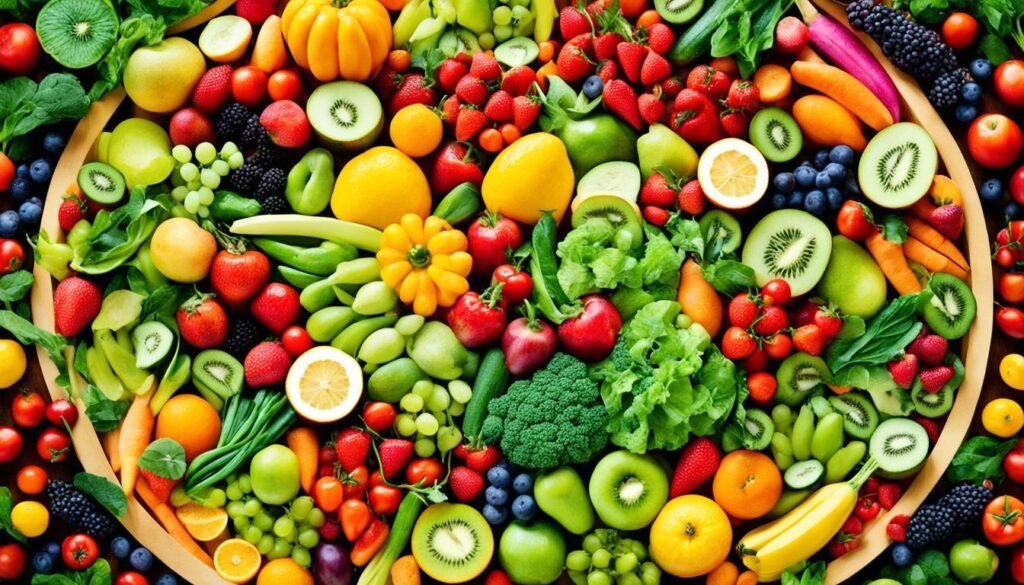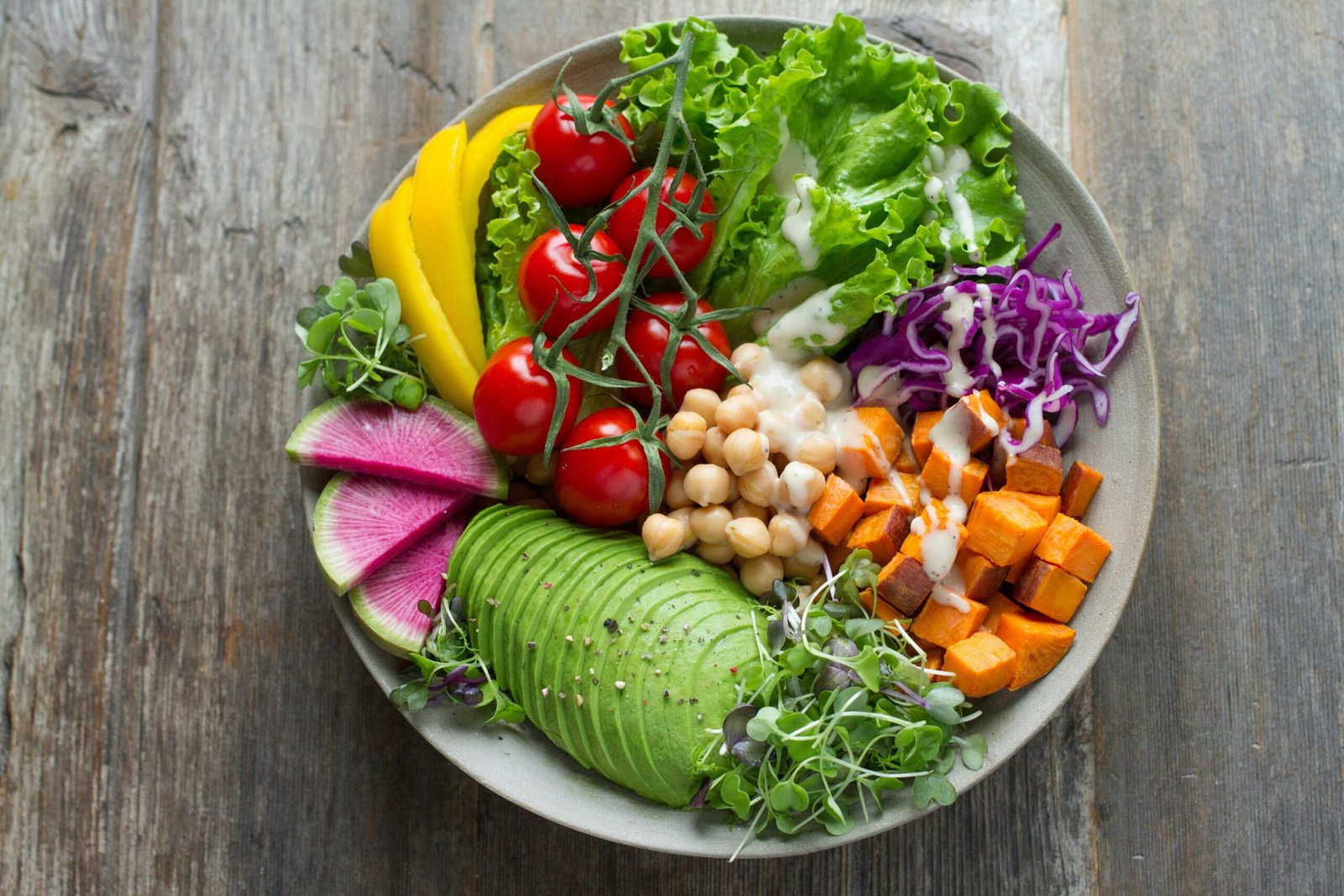When considering fruits for weight loss, it’s important to choose those that are low in calories but high in nutrients and fiber. Fiber helps you feel full longer, which can help reduce overall calorie intake. Here are some of the best fruits for weight loss:
Introduction: The Power of Fruits in a Healthy Diet
Fruits have long been celebrated as essential components of a balanced diet, offering a myriad of health benefits. They are rich in essential nutrients such as vitamins, minerals, and fiber, which are crucial for maintaining overall well-being. Incorporating fruits into your daily dietary regimen can contribute significantly to weight management, diabetes control, and the enhancement of general health.
One of the most compelling reasons to include fruits in your diet is their role in weight loss. Fruits are naturally low in calories and high in fiber, which helps in promoting satiety and reducing overall calorie intake. Additionally, the natural sugars in fruits provide a healthier alternative to refined sugars, curbing the cravings for unhealthy snacks and sweets.
For individuals managing diabetes, fruits can be a game-changer. Many fruits have a low glycemic index, meaning they cause a slower rise in blood sugar levels compared to other carbohydrate-rich foods. Consuming such fruits can help in maintaining stable blood glucose levels, making them an excellent choice for diabetics. Furthermore, the fiber content in fruits aids in slowing down the absorption of sugars, contributing to better blood sugar control.
Beyond weight loss and diabetes management, fruits offer numerous other health advantages. They are packed with antioxidants, which help combat oxidative stress and inflammation, reducing the risk of chronic diseases such as heart disease and cancer. The vitamins and minerals found in fruits also support immune function, skin health, and overall vitality.
This guide will delve deeper into the specific benefits of various fruits for different health goals, providing you with the knowledge to make informed dietary choices. By incorporating a diverse array of fruits into your diet, you can harness their full potential to boost your health and well-being.
When embarking on a weight loss journey, selecting the right fruits can significantly impact your success. Fruits like berries, apples, and grapefruit are particularly beneficial due to their low-calorie content and high fiber levels. These attributes not only help in curbing hunger but also provide essential nutrients without adding extra pounds.
Berries
Berries, including strawberries, blueberries, and raspberries, are exceptional choices for weight loss. They are low in calories—typically less than 50 calories per cup—and rich in dietary fiber. Fiber aids digestion and prolongs the feeling of fullness, making it easier to control portions and resist snacking. Additionally, berries are packed with antioxidants, which support overall health and can enhance metabolic function.
- Strawberries, blueberries, raspberries, and blackberries are high in fiber, antioxidants, and vitamins, while being relatively low in calories.
- They also have a high water content, which can help keep you hydrated and satiated.
Apples
Apples are another excellent fruit for those aiming to shed pounds. A medium apple contains about 95 calories and provides nearly 4 grams of fiber. The high fiber content slows down digestion and helps regulate blood sugar levels, which can prevent overeating. Apples also contain pectin, a type of soluble fiber that promotes satiety and supports gut health. Incorporating apples into your diet can be as simple as enjoying them as a snack or adding them to salads and oatmeal.
- Apples are rich in fiber and water, which helps to fill you up.
- Eating apples whole rather than juicing them can help you feel fuller and consume fewer calories overall.
Grapefruit
Grapefruit stands out for its metabolism-boosting properties. Consuming half a grapefruit before meals has been shown to reduce calorie intake and increase weight loss over time. This citrus fruit is low in calories—around 52 calories per half—and high in water content, which helps you feel full. The unique combination of vitamins and antioxidants in grapefruit also supports metabolic processes, making it an ideal addition to a weight-loss diet.
Incorporating these fruits into your daily meals can be both simple and effective. Whether you blend berries into a smoothie, slice apples for a midday snack, or enjoy grapefruit segments with breakfast, these fruits can aid in achieving your weight loss goals while providing essential nutrients for overall well-being.
- Grapefruit is known for its potential to aid in weight loss.
- It has a low glycemic index, which means it releases sugar into the bloodstream more slowly, helping to maintain stable energy levels.
Pears
- Pears are high in fiber and can help you feel full longer.
- They also contain pectin, which helps lower cholesterol levels and improve gut health.
Oranges
- Oranges are low in calories and high in vitamin C.
- Their fiber content helps with digestion and can help you stay full.
Kiwi
- Kiwi is nutrient-dense and low in calories.
- It is rich in vitamins C and K, fiber, and antioxidants.
Watermelon
- Watermelon has a high water content, which can help with hydration and fullness.
- It’s low in calories and contains vitamins A and C.
Melons (Cantaloupe and Honeydew)
- Like watermelon, these melons have a high water content.
- They are low in calories and can be very refreshing, especially in warmer weather.
Bananas
- While slightly higher in calories, bananas are rich in potassium, which helps reduce water retention.
- They also provide a good source of energy and can be a healthy pre- or post-workout snack.
Pineapple
- Pineapple is low in calories and rich in vitamins, enzymes, and antioxidants.
- Bromelain, an enzyme found in pineapple, may help with digestion and reducing inflammation.
Papaya
- Papaya is low in calories and high in vitamins, particularly vitamin C.
- It contains an enzyme called papain, which aids in digestion and can help with bloating.
Avocado
- Though higher in calories than other fruits, avocados are rich in healthy fats that promote satiety and nutrient absorption.
- They are also high in fiber and various vitamins and minerals.
Tips for Including Fruits in a Weight Loss Diet:
- Portion Control: While fruits are healthy, it’s important to eat them in moderation, especially those higher in natural sugars.
- Variety: Include a variety of fruits in your diet to ensure you get a range of nutrients.
- Whole Fruits Over Juice: Whole fruits contain fiber, which is often lost in the juicing process.
- Combine with Protein: Pair fruits with a source of protein or healthy fats to enhance satiety and balance blood sugar levels.

Best Fruits for Diabetics
For individuals managing diabetes, incorporating fruits with a low glycemic index (GI) into their diet is essential for maintaining stable blood sugar levels. The glycemic index measures how quickly a food causes blood sugar to rise, and choosing fruits with a lower GI can help prevent spikes. Among the best options for diabetics are cherries, plums, and pears.
Cherries, with a GI of 22, are an excellent choice. They are not only low in calories but also rich in antioxidants, which can help reduce inflammation and improve heart health. Cherries can be enjoyed fresh or frozen, making them a versatile addition to any meal or snack.
Plums, with a GI of 40, offer a sweet yet low-sugar alternative. They are packed with vitamins and minerals, particularly vitamin C and potassium, which are beneficial for overall health. Plums are also high in fiber, aiding in digestion and helping to manage blood sugar levels more effectively.
Pears, with a GI of 38, are another great fruit for diabetics. They are high in dietary fiber, which slows the absorption of sugar into the bloodstream, thus preventing rapid spikes in blood glucose. Pears can be eaten raw, added to salads, or baked for a healthy dessert option.
While these fruits are beneficial, portion control is crucial. Even low-GI fruits can cause blood sugar levels to rise if consumed in large quantities. A balanced approach involves pairing fruit with a source of protein or healthy fat. For example, a serving of cherries can be paired with a small handful of nuts, or a sliced pear can be enjoyed with a serving of Greek yogurt. This combination helps slow down the digestion process, ensuring a steady release of sugar into the bloodstream.
By focusing on low-GI fruits and practicing portion control, individuals with diabetes can enjoy the sweetness of fruit while maintaining stable blood sugar levels.
Incorporating fruits into your daily diet is essential for maintaining optimal health, thanks to their high nutrient content and numerous health benefits. Among the best fruits to eat daily are bananas, oranges, and apples, each offering a unique blend of vitamins, minerals, and antioxidants.
Bananas are an excellent source of potassium, which is vital for heart health and maintaining proper muscle function. They also provide a good amount of vitamin C, vitamin B6, and dietary fiber. A banana makes for a convenient snack on its own, but it can also be added to your morning smoothie or sliced over cereal for an easy nutritional boost.
Oranges are renowned for their high vitamin C content, which is crucial for immune system support and skin health. Additionally, oranges contain fiber, folate, and various antioxidants that help reduce inflammation and lower the risk of chronic diseases. Enjoying an orange as a snack, drinking freshly squeezed orange juice, or adding orange segments to a salad are simple ways to incorporate this fruit into your daily routine.
Apples, often heralded as a superfood, are rich in fiber, particularly pectin, which aids in digestion and helps maintain a healthy gut. They also provide vitamin C and a variety of antioxidants that combat oxidative stress and support overall health. Apples are incredibly versatile; they can be eaten raw, sliced into salads, baked into desserts, or blended into smoothies.
In addition to these three staple fruits, incorporating a variety of other fruits, such as berries, grapes, and melons, can further enhance your nutrient intake. Berries, for example, are packed with antioxidants and vitamins, while melons provide hydration and essential vitamins.
Incorporating these fruits into your daily diet can be both simple and delicious. Whether you enjoy them as snacks, in salads, or blended into smoothies, making fruits a regular part of your diet will contribute significantly to your overall health and well-being.
Top 5 Fruits for Diabetics
Managing diabetes effectively involves careful dietary choices, particularly when it comes to fruit consumption. While fruits are a natural source of vitamins, minerals, and fiber, their sugar content can be a concern for diabetics. Here, we highlight five fruits that are not only nutritious but also have a positive impact on blood sugar control.
Berries: Berries such as strawberries, blueberries, raspberries, and blackberries are excellent choices for diabetics. These fruits are low in calories and carbohydrates while being rich in fiber and antioxidants. The fiber helps slow down the absorption of sugar, thereby preventing spikes in blood glucose levels. Additionally, the antioxidants in berries can reduce inflammation and improve insulin sensitivity.
Apples: Apples are another great option for those managing diabetes. They have a low glycemic index, meaning they have a relatively mild impact on blood sugar levels. Apples are also high in fiber, particularly pectin, which can help lower bad cholesterol and improve gut health. Eating an apple with the skin on provides the most nutritional benefit, offering a good balance of vitamins and minerals.
Citrus Fruits: Oranges, grapefruits, lemons, and limes are packed with vitamin C, fiber, and essential nutrients that can aid in managing diabetes. These fruits have a low glycemic load and can help regulate blood sugar levels. The soluble fiber in citrus fruits can also slow the absorption of sugar and improve heart health, a crucial consideration for diabetics.
Cherries: Cherries, especially tart cherries, have a low glycemic index and are rich in antioxidants like anthocyanins, which have been shown to improve insulin resistance and reduce inflammation. They are also a good source of fiber, vitamins A and C, and potassium, making them a balanced choice for diabetics.
Pears: Pears are another diabetic-friendly fruit. They have a low glycemic index and are high in fiber, particularly when eaten with the skin. Pears provide vitamins C and K, as well as potassium, which can help manage blood pressure levels. Their fiber content aids in digestion and helps maintain stable blood sugar levels.
Incorporating these fruits into a balanced diet can help manage diabetes more effectively while providing essential nutrients for overall health. Always consult with a healthcare provider before making significant changes to your diet, especially when managing chronic conditions like diabetes.“`
Blox Fruits, a popular game within the Roblox platform, offers players a vibrant world where they can explore, battle, and grow stronger by consuming special in-game fruits. These fruits grant unique abilities, and each one can significantly enhance a player’s gameplay experience. Understanding which fruits are the best can provide players with a strategic edge, making their journey through Blox Fruits even more enjoyable and efficient.
One of the most coveted fruits in the game is the “Dragon Fruit.” This fruit transforms the player into a powerful dragon, granting immense strength and the ability to fly. The Dragon Fruit is not only visually impressive but also offers exceptional combat abilities, making it a top choice for players aiming to dominate in battles. Its fire-breathing attacks and high defense capabilities make it a versatile and formidable fruit.
Another highly sought-after fruit is the “Light Fruit.” Known for its incredible speed and agility, the Light Fruit allows players to move at lightning speed, making it perfect for quick escapes or rapid attacks. Its light-based abilities can deal significant damage to enemies while also providing the player with the ability to traverse the map swiftly. This fruit is ideal for players who prioritize speed and maneuverability in their gameplay.
The “Phoenix Fruit” is another excellent choice, offering both offensive and defensive capabilities. This fruit allows players to transform into a phoenix, granting regenerative health abilities and powerful fire-based attacks. The Phoenix Fruit’s healing properties make it particularly valuable in prolonged battles, as it can sustain the player through intense combat situations.
For players who enjoy strategic gameplay, the “Barrier Fruit” is an invaluable asset. This fruit enables the creation of impenetrable barriers that can block attacks and trap enemies. The Barrier Fruit is perfect for defensive strategies, allowing players to control the battlefield and protect themselves and their allies from harm.
Lastly, the “Dark Fruit” offers a unique set of abilities focused on controlling gravity. This fruit can immobilize enemies, making them easier to defeat, and its dark energy attacks can cause significant damage. The Dark Fruit’s crowd-control capabilities make it a powerful tool for managing multiple foes at once.
In conclusion, choosing the best fruit in Blox Fruits largely depends on a player’s preferred style of gameplay. Whether prioritizing speed, strength, defense, or strategic control, the game offers a variety of fruits to suit different playstyles. By understanding the unique abilities each fruit provides, players can make informed decisions that enhance their overall gaming experience.
Conclusion: Making the Best Fruit Choices for Your Lifestyle
Choosing the right fruits for your diet is not just a matter of preference but a crucial decision that can significantly impact your overall health. Throughout this guide, we have explored the various types of fruits that cater to different health needs, whether it’s for weight loss, managing diabetes, or maintaining a balanced daily diet.
For those aiming for weight loss, fruits like berries, apples, and grapefruits can be particularly beneficial due to their low-calorie content and high fiber levels. These fruits not only help in reducing caloric intake but also promote a sense of fullness, aiding in weight management.
Individuals managing diabetes should focus on fruits with a low glycemic index, such as cherries, plums, and strawberries. These fruits help in stabilizing blood sugar levels and provide essential nutrients without causing spikes in glucose levels. It’s important to consume them in moderation and pair them with other balanced meal choices.
For a well-rounded daily diet, incorporating a variety of fruits ensures that your body receives a broad spectrum of vitamins, minerals, and antioxidants. Aim to include a mix of citrus fruits, tropical fruits, and berries to maximize health benefits. These fruits are packed with essential nutrients that boost immunity, improve digestion, and enhance overall well-being.
To incorporate these fruits effectively into your diet, consider simple strategies like adding them to your breakfast cereal, blending them into smoothies, or enjoying them as a mid-day snack. The key is to make fruits a regular part of your meals without overloading on any single type.
Ultimately, the best fruit choices depend on your specific health goals and dietary needs. By making informed decisions and integrating a variety of fruits into your diet, you can enjoy their numerous health benefits while catering to your personal lifestyle requirements.
Source Links
https://www.eatingwell.com/gallery/11785/cheap-healthy-lunch-ideas-for-work/
more: The Ultimate Guide to Weight Loss Pills: Unbiased Reviews and Analysis – All Media Trend





